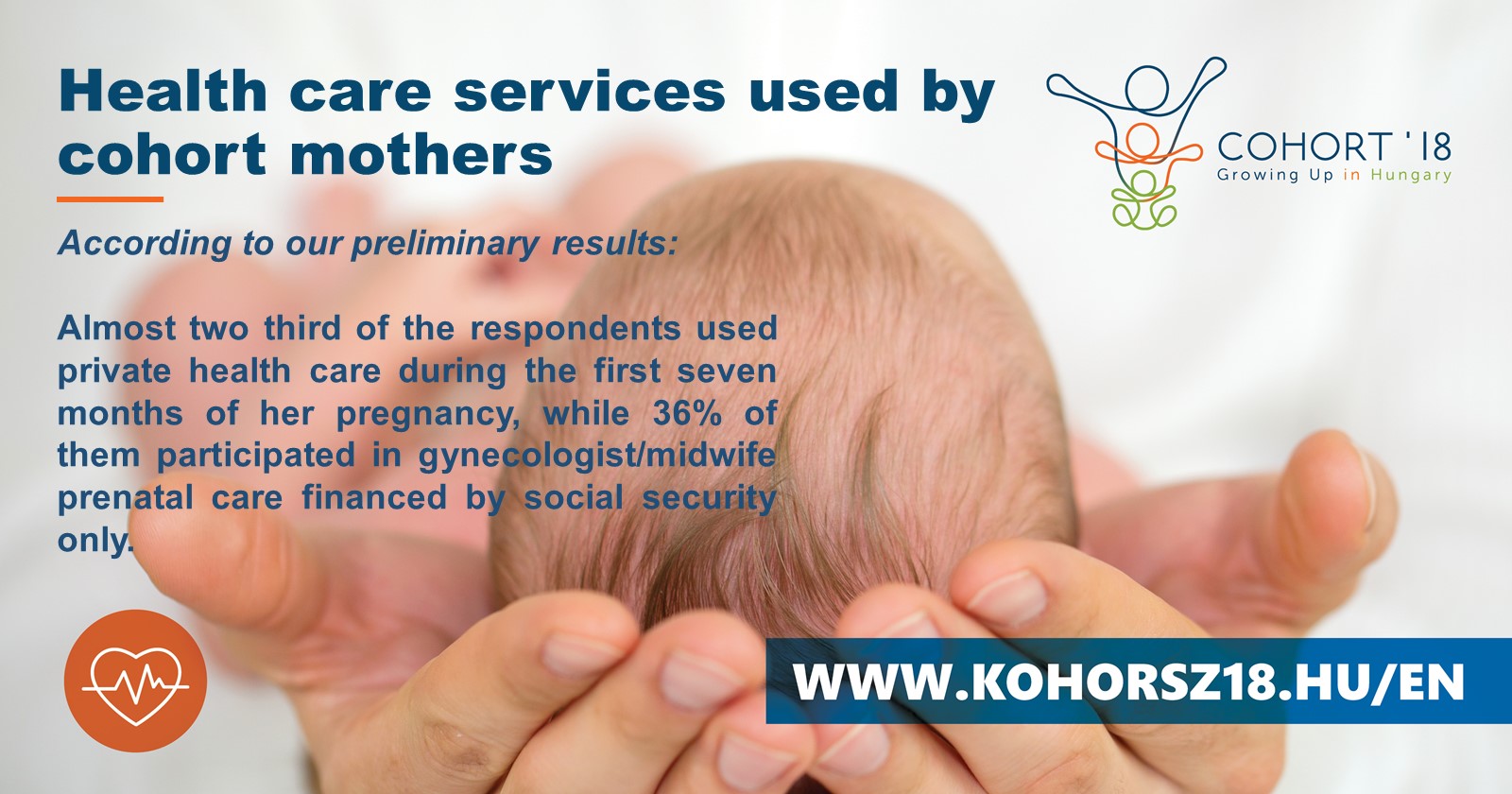Data from the first 1000 respondents indicate that women in their seventh month pregnancy use not only health services provided by the social security system, but they also substantially rely on the private health care system. This is in line with the recent trend of the total health care spending in proportion of the GDP continually decreasing in Hungary (it fell from 8.1% in 2003 to 7.2% in 2015), while the private health care spending of the population is becoming larger in proportion, around 4.7–4.9% (see HCSO data in Hungarian).
The first results of Growing Up in Hungary reveal that 36% of the pregnant women used the services of a gynecologist financed by the social security system only during the first seven months of her pregnancy, while almost two third of the pregnant women also received private health care – 30% received social security financed and private care side by side, and 34% went to private gynecologist consulting only.
A substantial part (82%) of the laboratory tests were financed by social security, but the private sector was present in this area as well. 3% did the tests in private care only, and 14% in a mixed setup. Pregnant women also tend to have a large part of the ultrasound scans made in the private care system. 36% indicated that they used the state services only, while 22% used only private care, and 42% mixed the two.
A large percentage of the pregnant women took the obligatory tests prescribed by the doctors during pregnancy: there were only 2-2% percent not participating in the glucose screening, the ultrasound or the laboratory tests. However, they were more likely to skip the dental check-up: 34% of the pregnant women interviewed did not participate in the dental examination, even though gingivitis, gum inflammation, gum wound formation, tooth erosion, loose teeth, and dental decay is proven to be more frequent during pregnancy. In addition, unattended oral disease can increase the risk of preterm delivery, low birth weight and preeclampsia (for details, see here and here).










